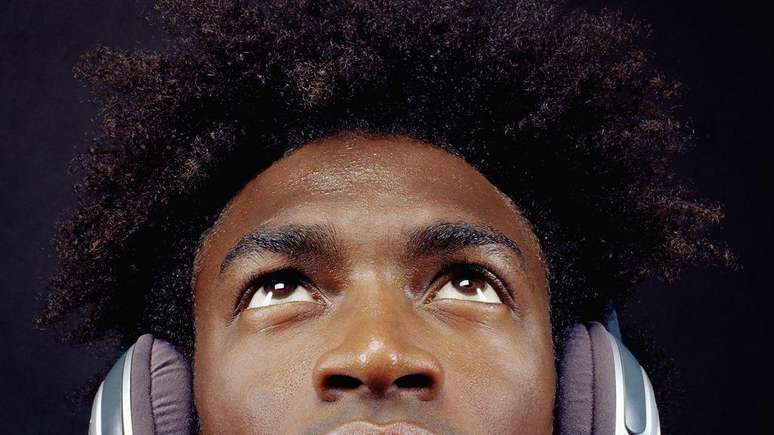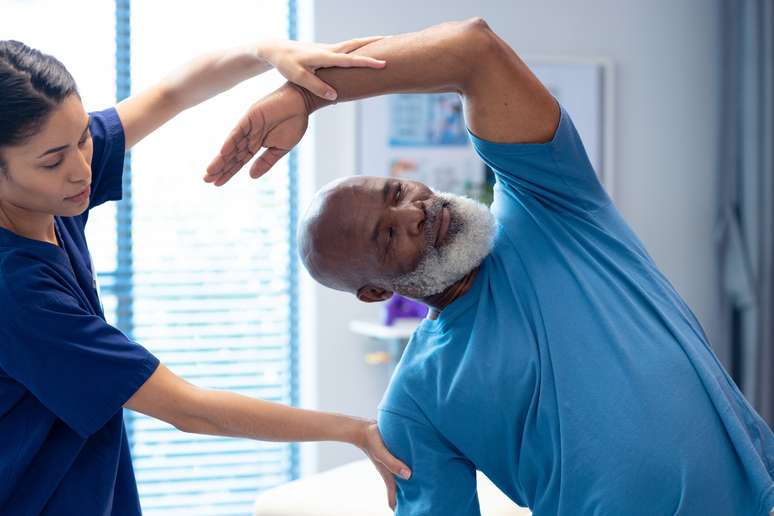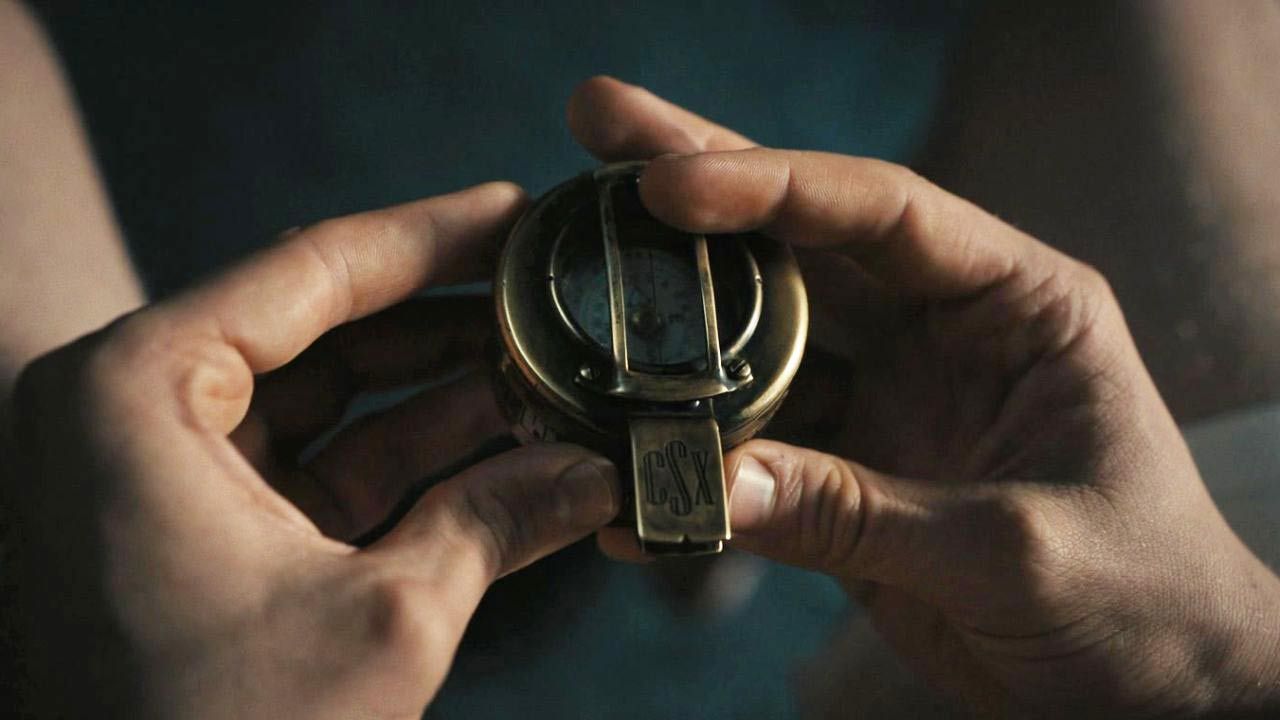For the psychologist Ethan Kross, there are no negative feelings. “In the right proportions, all emotions are useful, including anger, sadness and envy,” he says.
For the American psychologist Ethan Kross, the way most people deal with difficult feelings, most of the time, counterproductive.
“It seems that we are all walking with difficulty, occasionally finding an accidental or palliative solution to help us manage our emotional life,” says Kross, who is a researcher from the University of Michigan and director of the laboratory of emotions and self -control.
“Sometimes our makeshift tools help. Sometimes things worsen. It seems so random, insulating and inefficient,” he says.
In your new book Shift: how to manage your emotions so that they do not manage you (“Change: how to check your feelings so that they do not control you”, in free translation), intends to equip the readers a set of tools to navigate in a more constructive way to the ups and downs.
In an interview with the BBC, KROSS spoke of the benefits of “negative” feelings, the creation of safe spaces and emotional oasis – and the incredible advantages of entertainment.
Read below extracts selected by the interview.

BBC – What are the main myths of emotions?
Ethan Kross – A big mistake is the idea that there are good feelings and bad feelings and that we must try to live our free lives of all “bad emotions”.
This is a mistake: we develop the ability to experience all emotions for a reason.
Anger can motivate us to correct an injustice if there is still the opportunity to fix things.
Sadness can lead us to introspection and give a new meaning to situations that have been substantially modified.
Envy can motivate ourselves to fight for the things we want to get.
In the right proportions: this is a key phrase that feelings are useful.
Think about physical pain, which is negative an emotional state as we can imagine. Many of us want to live a free life from any type of physical pain.
But some people are born without the ability to feel pain due to a genetic anomaly and these children end up dying younger than people who can feel pain.
This is because if they put their hands on the fire, there is no sign that tells them to pull their hand. The same principle is true for all our negative emotions.
People often find it freely know that they must not try to live a life without negativity.
What you want to strive to reach is only to keep these emotional experiences under control, and I think this is a much more sustainable goal.
BBC – Many people believe that their emotions are out of their control. Where does this attitude come from? And what are the consequences?
KROSS – I think it depends on the facet of our emotional experiences we are talking about.
We often have no control over thoughts and feelings that are automatically activated while we live our lives all day.
But we can control the way we respond to these thoughts and feelings since they are activated, we have control of our subsequent actions. This is where the promise of sentimental education lies.
BBC – How can we change our responses to difficult feelings?
KROSS – Listening to music is an example of an underutilized instrument.
If you ask people because they listen to music, almost everyone will say that they like the way they feel when they listen to music.
But if you look what people do when they have to do with their emotions – like the last time they got angry, anxious or sad – only a small minority reports to listen to music.
Music is just a category of what I call “Shifter“Tools that can help manage emotions.
And from the moment you understand the functioning of these mechanisms, you can be much more strategic on how to use them in your life.

BBC – Describe also in your book how a change in the environment can expand our well -being. How to apply this principle in everyday life?
KROSS – As you said, many people feel restored when they go to a totally different place, free from work associations.
But we cannot always take a holiday and what I like to remind people is that there are often close environments that can change our mood.
We are very talking about how some people can be a source of comfort when we are not well.
But we can also cling to certain places.
Mine include the woods near my house, the house of tea where I wrote my first book and one of my offices on the university campus.
From the moment I am in that space, I have positive associations that help me to control my emotions.
It is like those hiding places you see in movies or in the espionage books, calls “Safe houses“(” Safe Houses “). We all have these sure corners in our life and we must be strategic to go to them when we have difficulty.
It is a way to manage us from the outside.
You can also take care of your environment. We know that plants and images of green spaces can be reparative. Just like the photos of their loved ones.
BBC – The goal is to be more aware of what we can do to change the way we feel, instead of leaving it at random?
KROSS – One of my hopes for this book is that we can make people much more deliberated on the incorporation of these tools in their lives.
BBC – Distance and entertainment can be a productive way to face emotions?
KROSS – Avoiding the feelings you are currently looking for not to think about something by distracting or involving in other behaviors, it is a behavior usually considered harmful to health.
And there is no doubt that avoiding things is a behavior associated with negative results; It is not an approach that I would say that someone has adopted.
But we don’t have to choose between face emotions or avoid them all the time. We can be flexible and do both.
There is a research that shows that successful people in dealing with long -term feelings also avoid their emotions sometimes in critical situations.
How do you apply to everyday life? Let’s say you have been changed due to a discussion you had with someone. You can try to solve right there, but a positive approach could be time to think about this problem and face it later.
I say it as the type of person I generally like to deal with things at the moment, just get to the bottom of the question and go on.
But I have already decided to dedicate myself to something totally unrelated to a day and then return to the problem – and this was beneficial.
I can go back and realize that this is not really a problem, or discover that the problem was smaller than it seemed, or that I can face it from a wider perspective.
BBC – How to manage our tendency to always compare with others?
KROSS – We often hear that we shouldn’t confront each other. But it is not so simple: we are a social species; Part of the way we make sense of ourselves and in our place in this world is comparing us with others.
It is true that we are often involved in comparisons that lead us to feel bad with ourselves. But you can reformulate it in ways that make the comparison work to your advantage, not against you.
If I find that someone is overcoming me, I can tell myself: “Well, if he understood it, then why can’t I?” And this is almost like having a new goal.
When I have difficulty, my first line of defense is to use the internal dialogue at a distance so called.
This means talking to yourself in the second person, that is, as if it turns to a friend.
Another strategy is to think about the future: how will I feel on a day, 10 days, 10 months?
And he also thinks about the past: how do you compare with other difficult things I have passed?
Often these tools lead me where I want to be emotionally.
But if they are not enough, I go to my emotional consultants, people in my support network that are very skilled in having empathy with me and advise me.
And I will also take a walk, I will spend time in a park or in a green area or will visit one of my safe corners, my emotional oasis.
Source: Terra
Ben Stock is a lifestyle journalist and author at Gossipify. He writes about topics such as health, wellness, travel, food and home decor. He provides practical advice and inspiration to improve well-being, keeps readers up to date with latest lifestyle news and trends, known for his engaging writing style, in-depth analysis and unique perspectives.








